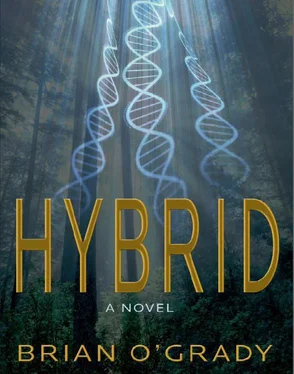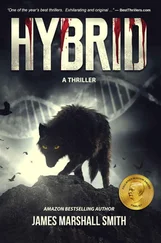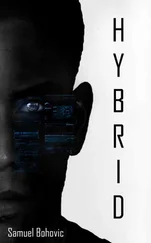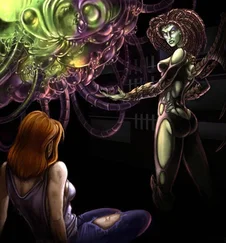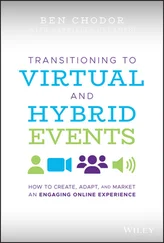Brian O'Grady - Hybrid
Здесь есть возможность читать онлайн «Brian O'Grady - Hybrid» весь текст электронной книги совершенно бесплатно (целиком полную версию без сокращений). В некоторых случаях можно слушать аудио, скачать через торрент в формате fb2 и присутствует краткое содержание. Год выпуска: 2011, ISBN: 2011, Жанр: Триллер, на английском языке. Описание произведения, (предисловие) а так же отзывы посетителей доступны на портале библиотеки ЛибКат.
- Название:Hybrid
- Автор:
- Жанр:
- Год:2011
- ISBN:1936558041
- Рейтинг книги:4 / 5. Голосов: 1
-
Избранное:Добавить в избранное
- Отзывы:
-
Ваша оценка:
- 80
- 1
- 2
- 3
- 4
- 5
Hybrid: краткое содержание, описание и аннотация
Предлагаем к чтению аннотацию, описание, краткое содержание или предисловие (зависит от того, что написал сам автор книги «Hybrid»). Если вы не нашли необходимую информацию о книге — напишите в комментариях, мы постараемся отыскать её.
Hybrid — читать онлайн бесплатно полную книгу (весь текст) целиком
Ниже представлен текст книги, разбитый по страницам. Система сохранения места последней прочитанной страницы, позволяет с удобством читать онлайн бесплатно книгу «Hybrid», без необходимости каждый раз заново искать на чём Вы остановились. Поставьте закладку, и сможете в любой момент перейти на страницу, на которой закончили чтение.
Интервал:
Закладка:
“He will take care of that,” Amanda said, referring to the very tardy Ron Benedict who was chatting politely with Lisa. “It won’t be comfortable, but at least you won’t be stuck in here. I need to go, and I hope we will get a chance to talk again. You’re a very interesting man, Phillip Rucker.”
Chapter 41
Joseph Rider tried to finish his morning newspaper, but the violently bucking subway car and the foul-smelling drunk next to him made it difficult. The train shot out of the tunnel and into the bright March sunlight so suddenly that Joseph had to look away for a moment. The sky was the impossibly vivid blue seen only in early spring, and he focused on it as the buildings of downtown Los Angeles raced by the window. He closed his eyes and tried to absorb its energy and beauty.
“Are you done with that?” the drunk asked and stuck a dirty finger into the sports pages. Rider passed over the entire newspaper without a word. He was certain that by tomorrow it would be among the millions of pieces of garbage that littered the City of Angels. It didn’t really matter. America had much greater problems. People were dying by the thousands in Colorado, and then, just to make the world a more dangerous place, the Iranians had foolishly attacked an American aircraft carrier. The president’s savage and immediate response had already sparked anger throughout the Arab world, even though the Iranians weren’t Arabs. People were going to die by the tens of thousands over there, maybe even more. The newspaper that was now serving as a blanket and a sunshade for the citizen next to him had casually mentioned that because of the recent crisis, units of the Strategic Air Command were being reactivated. As assistant director of public safety, Joseph knew what units those would be. More than thirty years ago, Ronald Reagan had advanced the premise that a biological attack would be the equivalent of a nuclear attack. Across the western United States, soldiers were unwrapping and assembling special munitions.
The train stopped, and Joseph got off. People pushed at him from all sides, but he continued his relaxed pace towards the Federal Building. Even though he was an employee of the County of Los Angeles, a shortage in office space had forced him to move into the gleaming new tower two years ago. As he spent most of his time conferring with federal officials, it actually worked out better for him.
He rode the elevator to the twenty-third floor, chatting casually with some other county refugees, and made it to his desk before eight. He was an hour early, as usual, and only a couple of other early birds dotted the Public Safety Center. As an assistant director, he rated his own small office and window. He dropped his briefcase on his desk and started his morning routine. Computer on, coffee maker on, answering machine checked for messages, and mail collected and sorted.
Finished, he sat down and turned towards his window. His official responsibilities didn’t start for another half hour, so he thought he might tend to some unofficial responsibilities. He pulled his laptop out of its case and opened it. The small but powerful computer began to boot itself up automatically, and after a minute, a small electronic beep asked for his password. He typed in the five-letter word and his browser came up. He checked the Web site, and to his surprise found an invitation to a child’s birthday party. The signal had come early, which didn’t surprise him. Events were moving quickly and in a somewhat unexpected direction. Five years ago, he had been selected largely because of an ability to act independently, and now he prayed that he would not fail. The small blue vial lay dormant, wrapped in its special paper, under the foundation of his rented house; he would slip away from work at noon and start the process that would slowly bring it back to life. It would take thirty hours to fully reconstitute, and then it would have to be dispersed within twenty-four hours. The virus needed a host.
He stared down at the commuters three hundred feet below him. They scurried about like ants, living their small, godless lives. He had been told that he needed to infect at least two hundred people to achieve a proper dispersal pattern, but he thought he could do many more than that before he himself was overwhelmed by the effects of the virus. He would be able to pass the virus to more than a hundred just by riding the subway; the rest he would find in the quintessential American institution: the mall. He had found a large upscale mall only three blocks from a mosque, and it would be there that death would find him.
For three years, he had not prayed publicly. When he had first arrived in Los Angeles, he had tried to carry on all the Muslim traditions and prayers, but quickly found that his thoughts colored his actions, so he forced himself to stop. He had to be anonymous, the typical American: baseball, barbecues, and beer.
He looked out to sea and tried to find the exact spot where the blue of the ocean touched the blue of the sky. He had never seen the ocean until he came to Southern California. It reminded him of the mountains in his native Afghanistan. The wind, the isolation, the freedom, and nature’s total disregard about whether you lived or died; things he had felt as a child in the White Mountains of eastern Afghanistan, and again as an adult in a small sailboat not ten miles from here.
His mind drifted back to his small village. He wished he could see it once more before he died. He wished he could see his father and tell him what he had really been doing these last five years. He knew that at some point, after he had gone to paradise, someone would. A Mercedes, or perhaps a BMW, would drive up the dusty streets where he had once played soccer. A man would get out, and because of his Western clothes, he would at first be viewed with suspicion. After introductions, he would be greeted warmly and invited in as an honored guest.
“Izhac,” he would say. “Your son died bravely in the service of the Almighty. He suffered much for Allah, but never once wavered. I am humbled to be in the presence of a man who raised such a perfect servant of God.” The meeting would end when his father was presented with an envelope full of more money than he had ever seen in his fifty-one years.
Izhan Ahmed, also known as Joseph Rider, closed the laptop and slid it back into its case. Something must have happened to the German , he thought. No matter — he had well insulated himself from Reisch. He was beyond suspicion. It was a supremely ironic twist of fate that, quite legitimately, he had risen to a position in which he was now the individual most responsible for protecting the citizens of Los Angeles from people like himself.
Chapter 42
William McDaniels wasn’t paid to track down terrorists, he was paid to kill them before they reached American soil, but he had an idea that wouldn’t go away. He strummed his fingers on the small file labeled Rachel Hill . The information was new, and therefore subject to error, but he thought he saw the outlines of a pattern. According to Amanda Flynn, as many as eleven parasites had burrowed deep into the body of the United States, and each was armed with a dose of the original virus. Avanti had called it the Hybrid for some reason. Then, there was the fact that over the past three years, databases and storage facilities of the FBI, the Army Medical Corps, and the CDC had been systematically altered and plundered. Now, a spy had turned up in one of those very places.
There had to be a connection. On the other hand, just how big of an operation could Jeser mount and still stay below the collective radar of the Western world? Did they have the resources to both infiltrate American society undetected and separately invade its secure areas, all without their existence being confirmed?
Читать дальшеИнтервал:
Закладка:
Похожие книги на «Hybrid»
Представляем Вашему вниманию похожие книги на «Hybrid» списком для выбора. Мы отобрали схожую по названию и смыслу литературу в надежде предоставить читателям больше вариантов отыскать новые, интересные, ещё непрочитанные произведения.
Обсуждение, отзывы о книге «Hybrid» и просто собственные мнения читателей. Оставьте ваши комментарии, напишите, что Вы думаете о произведении, его смысле или главных героях. Укажите что конкретно понравилось, а что нет, и почему Вы так считаете.
